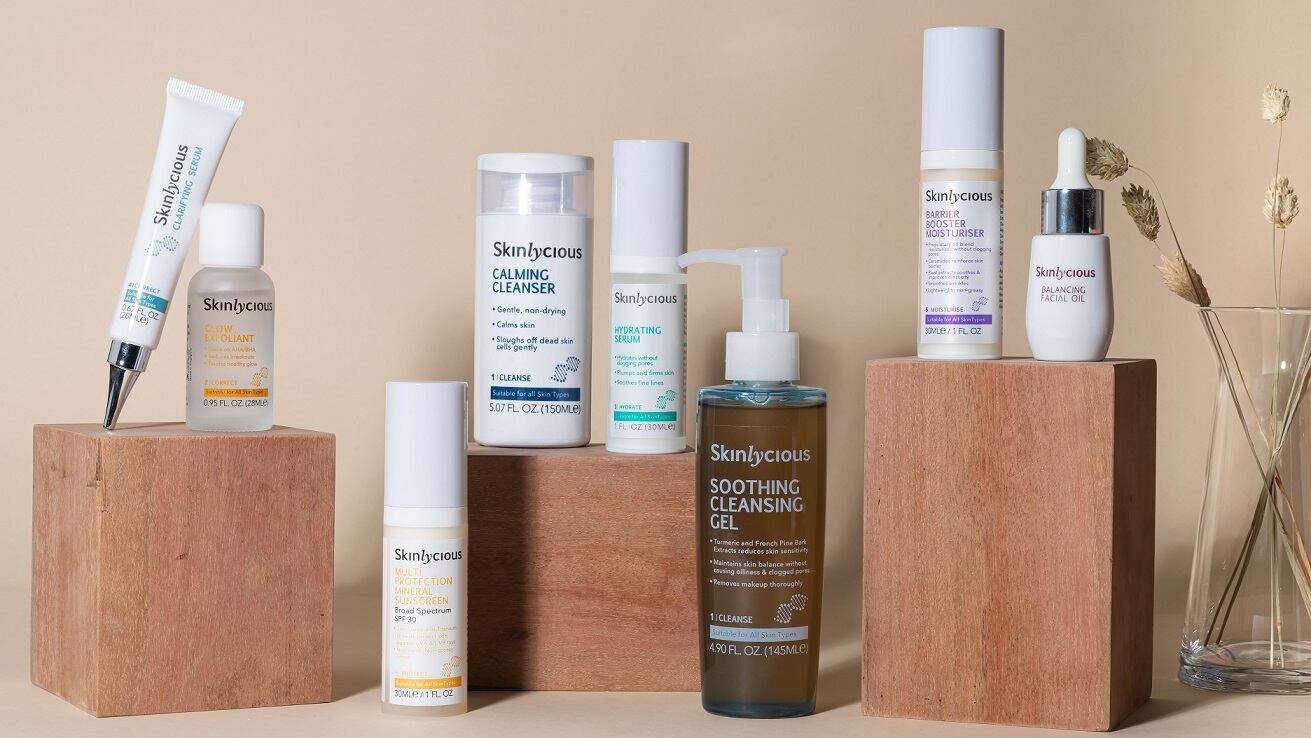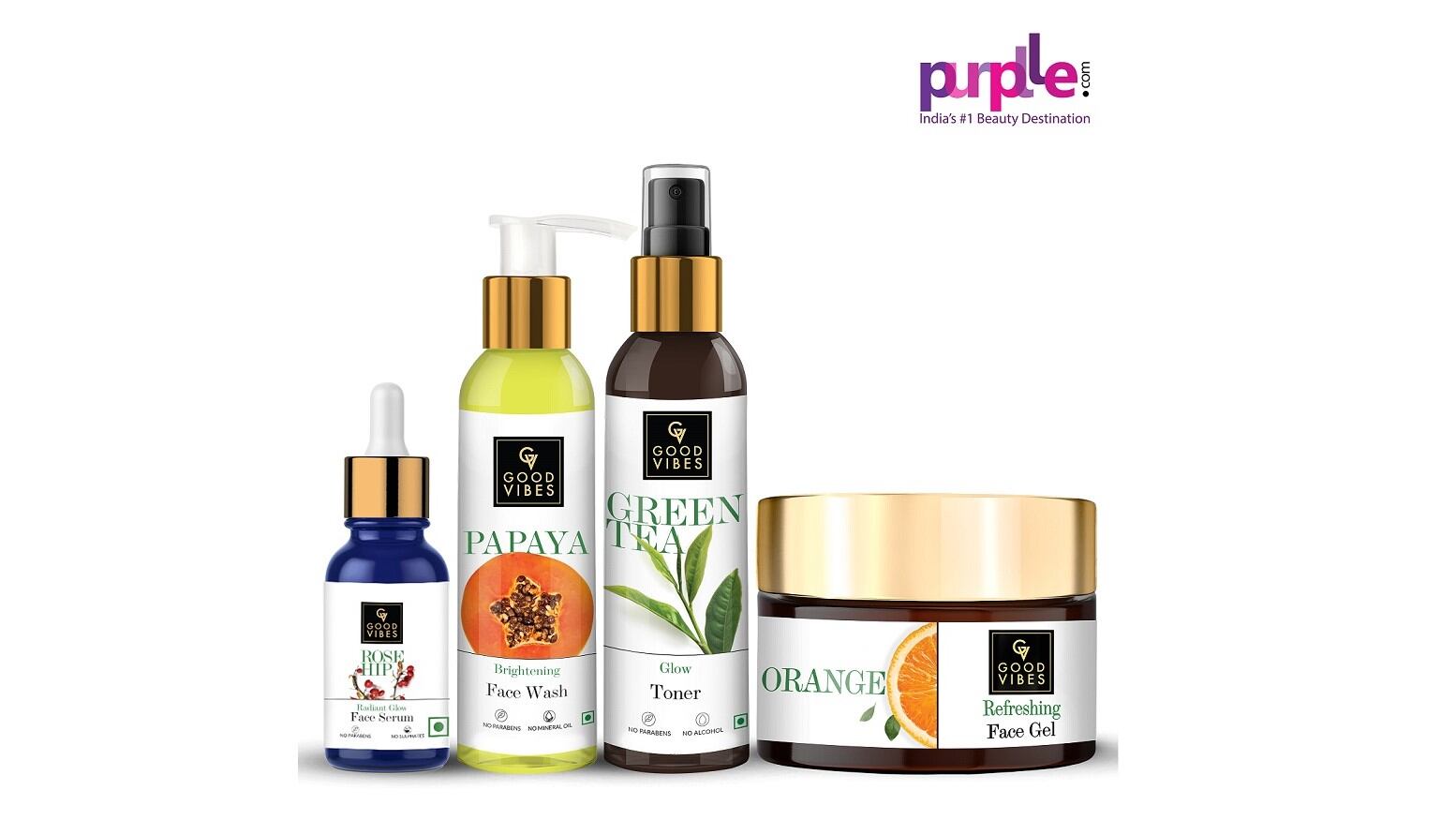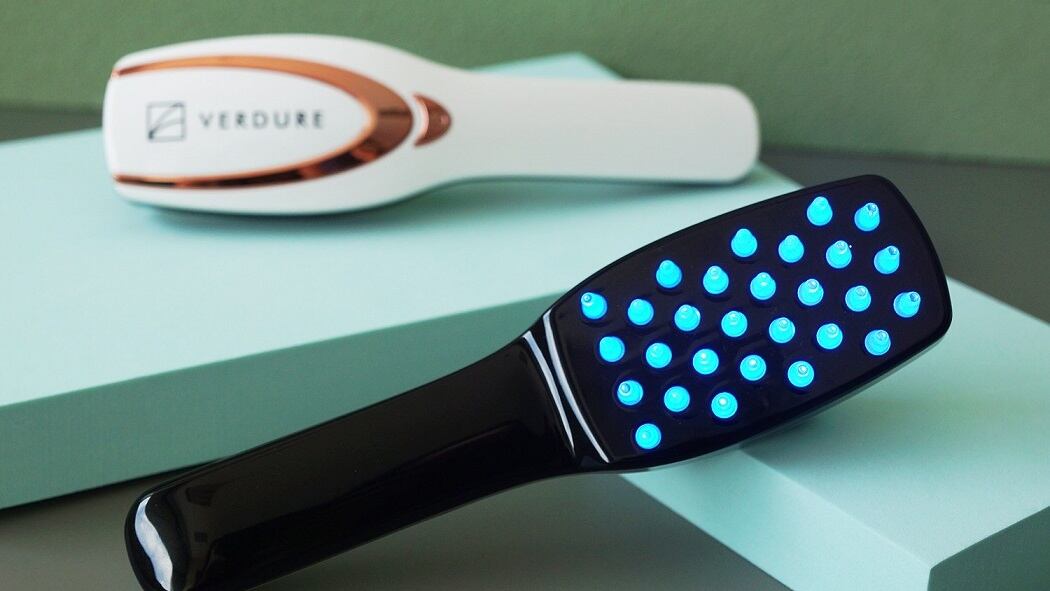1 – Sunscreen still needed: Protective surgical face masks ineffective against UV protection, says Kao
People still need to protect their skin from ultraviolet sun rays with sunscreen even when wearing protective surgical face masks, according to new research from Kao.
For the first experiment, researchers from the firm’s Beauty Research and Creation Center (BRCC) conducted the experiment on a model with ‘skin’ that turns purple when it comes into contact with ultraviolet (UV) rays.
A cream sunscreen with SPF 50+ and a triple plus protection grade (PA) was applied to half of the model’s face and protected with a standard non-woven surgical face mask.
As hypothesised, the skin underneath the mask that was not protected by sunscreen turned purple, indicating exposure to UV rays.
2 – Power of sandalwood: Quintis to double down on cosmetics market on the back of antioxidant effectiveness
Australian sandalwood supplier Quintis is eyeing new opportunities in the cosmetic space after a peer-reviewed study showed that it is a more potent antioxidant than vitamin E.
Quintis Sandalwood is a supplier of Indian and Australian sandalwood raw materials, including oil, powder, logs and chips.
It supplies sandalwood materials to multiple industries for use in fragrance, cosmetics, as well as incense and religious carvings.
The firm owns and manages an Indian sandalwood plantation that spans over 12,000 hectares across northern Australia and is home to more than 5.5 million trees.
3 – Ultimate upgrade: Shiseido’s latest Ultimune serum taps into breakthrough research on blood circulation
The fourth iteration of Shiseido’s best-selling Ultimune serum showcases the company’s research into the co-relation between blood circulation and skin health.
The latest serum feature’s Shiseido’s The Lifeblood technology as well as new ingredients Houttuynia cordata and fermented hibiscus Extract.
Shiseido’s latest dermatological discovery, dubbed the Lifeblood Research, dove into the significance of blood circulation and its relation to skin health and its appearance.
“The latest ground-breaking Lifeblood Research involves fundamentally improving the skin by constantly enhancing blood flow. It is different from conventional skincare technology, which only deals with individual skin concerns temporarily and only on the surface level,” said Ryota Yukisada, chief brand officer of Shiseido.
4 – Smart skin: Amorepacific to use wearable device to develop cosmetics for specific environmental needs
South Korean cosmetics firm Amorepacific said it intends to use the sweat-proof wearable skin measurement device it developed with MIT to produce cosmetic products according to environmental needs.
Amorepacific announced in June that it had collaborated with Massachusetts Institute of Technology (MIT) to develop a wearable skin measuring device.
The film-like and stretchable patch is embedded with a flexible sensor. It can be stuck on the skin and used to measure the skin condition for a long period of time, withstanding sweat and remaining comfortable for the user.
“Efforts to measure the condition of human skin more precisely and stably have been carried out in various fields. However, the skin is naturally affected by various external environmental changes such as sweat, and thus, it was difficult to maintain measurement and observe changes without interruption,” said Han Jiyeon, a scientist from the Amorepacific R&D centre clinical research lab.
5 – Personalisation and skin microbiome: S. Korea’s Cosmax to develop AI-powered platform
South Korean ODM giant Cosmax is set to develop an AI-powered platform that will help both its customers and end-consumers get personalised information about the skin microbiome.
CosmeticsDesign-Asia has learnt that the commercial platform would map out its specialised technology by factors such as efficacy to aid developers in producing skin microbiome products.
To build up the system, the company has collected skin microbiome information from over 1,000 people to date and analysed the statistical significance between them.
Furthermore, the company is planning to develop a consumer-based personal skin microbiome platform as well to provide “high-quality value” to consumers.
6 – Mask-proof lip gloss? Maquillage launches new transfer-resistant product featuring Shiseido’s latest tech
Shiseido-owned make-up brand Maquillage has launched a new lip product featuring new technology that makes it transfer resistant despite its glossy finish.
Maquillage Dramatic Lip Tint debuted on October 21 with five shades that retail for JPY2,300 (U$21).
The newest product was developed in response to the increased use of protective face masks, which caused a devastating blow to lipstick sales in the past 18 months or so.
“Due to COVID-19, consumers' values and behaviours around the world are changing dramatically. Reflecting such changes there is increased awareness of health and skincare, while at the same time frequencies to use make-up like lipstick are decreasing as people go out less and wear masks,” remarked Masahiko Uotani, CEO of Shiseido, last year.
7 – A good alternate? Aussie firm eyeing opportunities for Indian sandalwood as a CBD alternative following China ban
Australian sandalwood supplier Quintis is eyeing new opportunities in China’s cosmetic space after a new scientific review revealed Indian sandalwood oil has more scientifically proven benefits than CBD oil.
Quintis Sandalwood is a supplier of Indian and Australian sandalwood raw materials, including oil, powder, logs and chips for multiple industries for use in fragrance, cosmetics, as well as incense and religious carvings.
Previously, the company told CosmeticsDesign-Asia that it has been placing more emphasis on the cosmetics side of the business, believing it could tap into the demand for natural products in the market.
Now, Quintis is looking to target the Chinese market on the back of a new review revealing that Indian sandalwood oil, or Santalum album, has more substantiated benefits than cannabidiol (CBD).
8 – Seaweed saviour: Marinova highlights ‘unmet needs’ in the market for skin microbiome-friendly atopic dermatitis treatment
There is a gap in the market for skin microbiome solutions to help treat atopic dermatitis, claims biotechnology company Marinova, for which it believes its brown seaweed extract could play a major role.
Atopic dermatitis is the most common type of eczema, a widespread condition characterised by dry and itchy skin.
While there are treatments for atopic dermatitis available in the market, Tasmania-based biotech firm Marinova believes there is a gap in the market targeting the skin microbiome.
“Broadly, atopic dermatitis is quite a complex illness where there's a multitude of factors that contribute to it… and there's an unmet need, particularly in the skin microbiome space,” said Dr Damien Stringer, operations manager, Marinova.
9 – Too complex: Chinese team questions ‘quality and value’ of Asian herb research on skin whitening
A team of researchers from two Chinese institutes have questioned the validity of the existing research undertaken on Asian herbs for skin whitening applications, concluding that the ingredients were “too complex to obtain reliable results”.
Despite being fraught with potential hazards, skin care products with whitening claims continue to thrive in the Asian beauty market because fair skin is still considered the ideal of beauty.
According to a 2019 report by Grand View Research, the global market size of skin whitening in 2018 was $8.3bn. In the largest product segment – the cream category at 53% -- China, Japan, India, Indonesia and South Korea, emerged as the top five-ranked countries in terms of sales.
The high demand for skin whitening solutions coupled with the increasing concern for product safety, has led to a raft of research into traditional Asian herbs and potential skin whitening properties.
10 – Clean sweep: Clé De Peau’s new micellar cleansing water to feature Shiseido’s new make-up removing tech
Japanese beauty giant Shiseido has developed new technology to enhance the effectiveness of micellar water that it will launch with Clé De Peau Beauté starting from June 2021.
The latest tech will be applied to Clé De Peau Beauté Micellar Cleansing Water will be rolled out in Japan in June and will be launched subsequently overseas from July.
Clé De Peau Beauté Micellar Cleansing Water will be the first product to be enhanced with the newly developed tech and Shiseido intends to develop more cleansing products with it in the future.
The impetus of the new launch was Shiseido’s development of a unique state of surfactant, the sponge phase.





